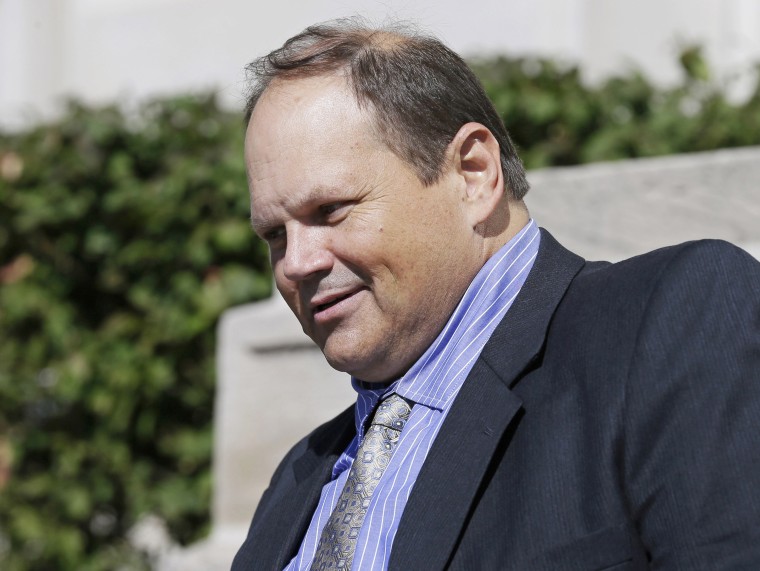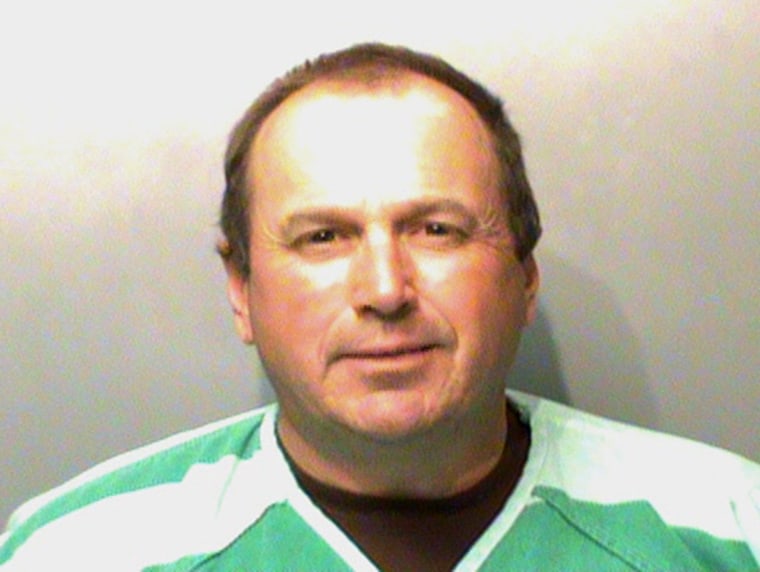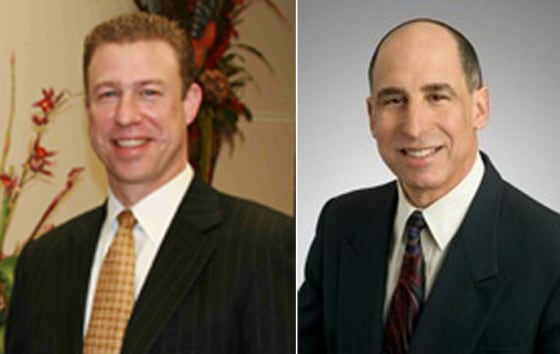Prosecutors in the case of a former lottery insider convicted last year in a national Hot Lotto jackpot-rigging scandal are seeking to subpoena records from two attorneys they believe could be tied to the plot.
Documents filed on Tuesday by the lead prosecutor in the case, Assistant Iowa Attorney General Rob Sand, seek to subpoena records from Texas attorneys J. Thad Whisenant and Luis Vallejo.
Authorities assert that immediately after investigators attempted to interview Whisenant about the case, he contacted Vallejo, who prosecutors said in the court filing is connected through phone records to one of the men indicted in the scheme.
All three men, Sand contends in the new court filings, are financially connected. He is seeking the bank records of Whisenant and Vallejo, and Vallejo’s phone records. Whisenant and Vallejo did not immediately respond to phone and email requests Wednesday morning for comment on the new filings.

State lotteries are a $70 billion industry in America, providing reliable revenues to dozens of U.S. states to pay for schools and other public projects.
Yet, like the stock market, the entire U.S. lottery system is built on confidence: the belief among millions of Americans that despite astronomical odds there really is a chance for them to win the big one.
Lottery IT Director Sought $14.3 Million Jackpot
In 2015, Eddie Tipton, the former information technology security director for the Multi-State Lottery Association, was convicted of two counts of fraud for rigging a 2010 computerized Hot Lotto game in an attempt to win a $14.3 million jackpot in Iowa, which lottery officials have described as one of the largest Hot Lotto jackpots ever claimed.
Prosecutors said he injected a stealth software program into the lottery’s central computer to generate pre-selected numbers that he then used to try and cash in the winning ticket.
Tipton’s attorney has argued that his conviction was based circumstantial evidence, and that authorities have never proven that his client actually injected the self-deleting software program.
Tipton appealed his conviction and his subsequent ten year prison sentence, and earlier this year, an Iowa appeals court reversed part of the fraud convictions.
The higher court upheld the conviction for rigging the lottery but dismissed a second fraud conviction related to Tipton’s attempt to cash in the winning ticket.
Earlier this month, lottery officials said that an internal investigation had determined that no other MUSL employees were involved in the Tipton plot.
But since Tipton’s trial and conviction, prosecutors have tied several other men, none of them lottery employees, to the alleged plot.
'An Invasion of Trust'
Tipton’s primary job as IT director was to safeguard the sanctity of the games and make sure nobody cheated.
"This is about as large an invasion of trust as I can possibly imagine,” the judge in the case told Tipton before issuing the sentence.
The massive jackpot was withheld by lottery officials when they became suspicious after multiple representatives tried to cash in the ticket on behalf a mystery client, and an investigation was launched.
After convenience store video of a man purchasing hot dogs and what was later determined to be the winning ticket lottery ticket was publicly released last year, one of Tipton’s co-workers called authorities to claim that the man in the video is Tipton.
Last fall, after new evidence emerged indicating that Tipton may have been involved in rigging lottery games in five more states, authorities charged him with ongoing criminal conduct. The probe expanded nationwide to include all 37 states that rely on MUSL for their randomly-generated lottery numbers.

Tipton’s younger brother Tommy, and a second man, Robert C. Rhodes II, have been indicted for allegedly taking part in the scheme.
Tuesday’s subpoena requests assert that Whisenant, Vallejo and Tommy Tipton “appear to be financially involved.”
The increasingly bizarre case has featured court filings allegedly tying three of the men under investigation to the Gulf Coast Bigfoot Research Organization, which searches for the possibly-mythical creature in southern U.S. states, and testimony from his brother that Eddie Tipton could not be the man in the video because, he said, “Eddie’s not a hot dog guy."

